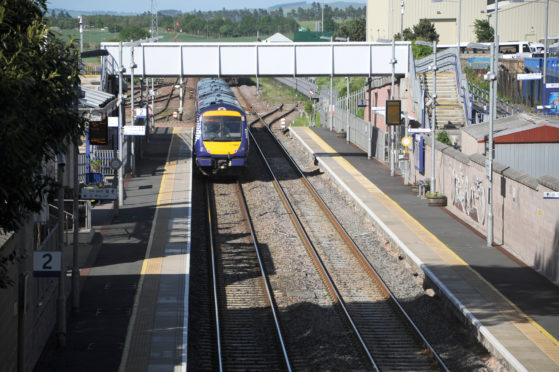An £80,000 study has been launched into the potential creation of new train stations between Aberdeen and Laurencekirk.
The north-east regional transport body Nestrans has secured £80,000 from Transport Scotland’s Local Rail Development Fund (LRDF) to carry out the assessment.
West Aberdeenshire and Kincardine MP Andrew Bowie backed the application for the funding, after more than 100 constituents wrote to him indicating a wish to reopen the former train station at Newtonhill.
The station shut in 1956, after being in operation for more than 100 years, but Mr Bowie hopes the feasibility study could help bring it back into use.
He said: “Without a doubt, bringing Newtonhill back on line will have massive economic and social benefits.
“Over the last 11 years, Laurencekirk station has been central to the fortunes of a town on the up, it has taken a lot of pressure off the road network, and helps with sustainable travel objectives.
“It’s no surprise that people in Newtonhill want that too. It will be money well spent.”
As well as Newtonhill, other communities between Laurencekirk and Aberdeen could be considered for train stations or “other potential interventions”.
Nestrans previously received cash from the first round of LRDF funding from Transport Scotland, which was secured to carry out appraisal work on accessibility at Insch Station – which has been notoriously inaccessible for those with mobility issues for years.
Angus North and Mearns MSP Mairi Gougeon said: “This feasibility study will make interesting reading, and I look forward to seeing what proposals for improvement will be suggested.
“Whether travelling by road or by rail, there have been a number of issues in recent times that continue to impact local communities and commuters along the transport corridor between Aberdeen and Laurencekirk that need to be addressed.
“I therefore welcome any work to be done that could help alleviate these areas of concern.
“I would encourage local residents to keep an eye out for any changes or proposals that could affect them, either positively or negatively, at an early stage.”
